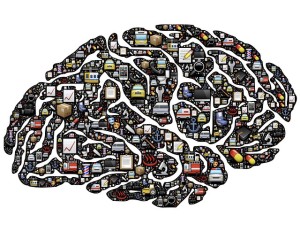
Brain injury + misunderstood + hard to understand = The outcomes of brain injury can easily seem very personal.
Every week I receive letters, comments on the blog, messages via Facebook – talking about people’s experience, living with brain injury.
This is an aspect of writing ChangedLivesNewJourneys that I really, really enjoy so please keep writing.
The foundation of many letters and stories I receive are three points:
[ordered_list style=”decimal”]
- Brain injury is hard to understand.
- Brain injury is often misunderstood.
- The outcomes of brain injury are often taken personally by others.[/ordered_list]
 Now I realise I am in danger of becoming a broken- record- reporter.
Now I realise I am in danger of becoming a broken- record- reporter.
I will accept that risk and write yet another article with the reminder “Please don’t take it personally. It’s the brain injury talking”
Examples below are just some of the potential outcomes causing brain injury misunderstood.
Today speaking from the brain’s point of view! With my broken record statement – repeated – just as a reminder !
Here is the brain talking about the big job it has to do and what happens when it can’t do it’s job properly:
“ I am a master at being subtle, complicated, and even plain weird. Especially in the way I operate after I am damaged.
Just when you think you understand me – bang – I throw in a curve ball to keep you guessing.
‘You Can do X so why can’t you do Y’ – Oh this happens a lot.
There I am -poor old brain – trying my best and someone says “Well how come you can do THIS but not THAT! “How come – you can tell me how the solar system works but can’t find you way to the shop down the road.”
“How come – you can remember your first holiday in detail, but you can’t remember my name”
Brain injury misunderstood! All those ‘This not That’s’ can go on and on!!
“Please don’t take it personally. It’s the brain injury talking”
Here are some more other examples:
If I get tired I need to stop and rest. If one part of me is damaged I work harder. No point trying to keep going – no can do.
When I get tired don’t expect perfect performance or anything close. Everything is likely to get worse. Everything.
I am not being a drama queen. I am not being a wimp –. You wouldn’t expect to drive a car with no fuel would you? So don’t expect me to work if I have used up my fuel. Rest and refuel – its the only way to recharge.
I am not avoiding stuff. I am not being lazy. I can’t get over it with willpower.
“Please don’t take it personally. It’s the brain injury talking”
My get up and go has gone. It might look like apathy, or that I no longer care. No it is not – I just can’t get my starter motor to work. It needs a kick-start from outside. It maybe temporary or maybe long time. Please don’t say lazy – it is not laziness. Please don’t say I don’t care – it is not uncaring.
“Please don’t take it personally. It’s the brain injury talking”
Memory loss
The workings of memory has been sprinkled throughout. Most lobes of the brain have a memory job. How to remember names here. Know how to clean my teeth there.
If I remember some things and not others it is not because I am trying to annoy you. It’s complicated.
I might remember some things like cooking your favourite meal, but not others – like what your partner just told you.
I might remember something in the morning but not when asked in the afternoon.
I might forget strategies, important conversations, even things that are meaningful. Then I might remember trivia. I might need to ask questions over and over and over again to remind myself.
“Please don’t take it personally. It’s the brain injury talking”
If I have changes to my ability to remember, to plan, to organise – I probably will have trouble taking in and learning new stuff.
While it might push everyone’s patience – I might remember stuff I knew before – but new things just won’t stay around. It is not I don’t want to learn – the bits that help learning and remembering are not working properly.
“Please don’t take it personally. It’s the brain injury talking”
Many brains after damage find they can no longer put themselves in another person’s shoes. This might seem cold and unfeeling. It is not meant to.
I can no longer work out what effect my behaviour has on you. I might not be able to feel how it is for other people even those that are loved. Someone might need to explain to me what effect I am having, what feelings are happening and what I need to do.
“Please don’t take it personally. It’s the brain injury talking”
Changes in Control – Brain loves to control. It controls EVERYTHING. Chaos can happen when this is no longer the case:
Disinhibition – The bit of me that keeps a person nice, and socially acceptable can be damaged. I might not be able to stop myself doing and saying things that are private, hurtful, damaging, or just plain outrageous.
Sensory changes the way I feel and interpret the world may be changed. The way my senses work might make not sense to others – I can’t feel pain, I can’t bear noise or light.
Emotional changes This is a tricky one at the best of times! I can’t always figure out emotional goings on any more.
I just might not respond as expected. Laughing or crying when I shouldn’t. Or for too long. Not responding well to emotional conversations or situations.
“Please don’t take it personally. It’s the brain injury talking”
For supporters: family, partners, friends, supporters – it can be tough to understand brain injury and accommodate changes.
The reminder not to take things personally can at times seem empty, sometimes cruel.
Taking care of yourself is important – more to come on this.
Here are a few more examples of misunderstanding from Barbara J Webster at Lash and Associates – “Lost & Found: What Brain Injury Survivors Want You to Know”
AND FINALLY –
 The brain has a complex and complicated job to do.
The brain has a complex and complicated job to do.
The brain has to manage and control everything we do.
The brain has some subtle and not so subtle functions. Any or all of these can be affected in mild, moderate, and severe ways.
No wonder we struggle to understand brain injury. No wonder it is so easy to take things personally. No wonder diagnosis can be missed.
Yet it is so important for the person living with brain injury that we do try to understand, and we do try not to take things personally.



Nicely done blog once again. Please re-post your “I’m so tired my brain hurts”. That is a great piece…. is “A Letter from My Brain” yours as well? If so, re-post that too.
Thanks for the encouragement Richard. I will look into the reposting of the fatigue article. I don’t think (allowing me some wiggle room here in case I have just forgotten) the ‘Letter From My Brain’ is mine – would love a link to share if you have it. Regards Melanie
In the earlier stages of my brain injury, school students when trying to return to school, would laugh at me for something I said that didn’t make sense.
Life was a broken jig-saw.
Hi Ruth, It is hard to hear that many people still don’t understand brain injury. I am hoping it might have improved a bit since your school days but sadly I am not so sure. Regards Melanie
Hello Melanie, here’s a link to the “A Letter From Your Brain” (seems I forgot the real name of it). http://waiting.com/letter.html
Thanks for sharing this Richard. I like the way it is written from the brain’s point of view. Regards Melanie
I recently experienced the disbelief again. I regularly talk to a guy in my gym and I’ve told him of my condition. The other day he started questioning me like it was an interrogation. He attributed some of my experiences to stress. I told him that I had these experiences whether I was stressed or not. Then his answer was depression. My response was the same. We went around in circles until he finally concluded that what I’m experiencing is exactly what everyone experiences as we get older. My attempt to bring my neuropsych eval was answered with “I’m smart with most things, but not with math. We all have varying degrees of function.”
It’s a perfect example of why I’m very leery of getting close to anyone. The people who knew me before don’t want to understand and the new people give me the third degree.
Hi Brainfan, I so admire your persistence and patience in helping someone to understand brain injury. Yes unfortunately it does seem people often doubt rather than believe and understand. It seems in many areas of life we are quick to slap labels on people without proper insight – as in your example “Its depression”. I can understand why you might be leery, yet I sense your understanding and patience in explaining brain injury is just what the world needs more of. Regards Melanie
Hi Brainfan,
I so understand. I become frustrated by the responses of others such as the guy at your gym. I often hear “Oh, that happens to me, it is our age”. I was 28 when my TBI occurred. And, from 1 psychiatrist “You would have been depressed anyway, it is your personality”. No, I would not. From another psychiatrist “If you get tired enough, you will sleep”. I so wish that was true.
I wish doctors especially would think before they speak! I ended up blaming myself and not taking meds, thinking I should be over this by now!